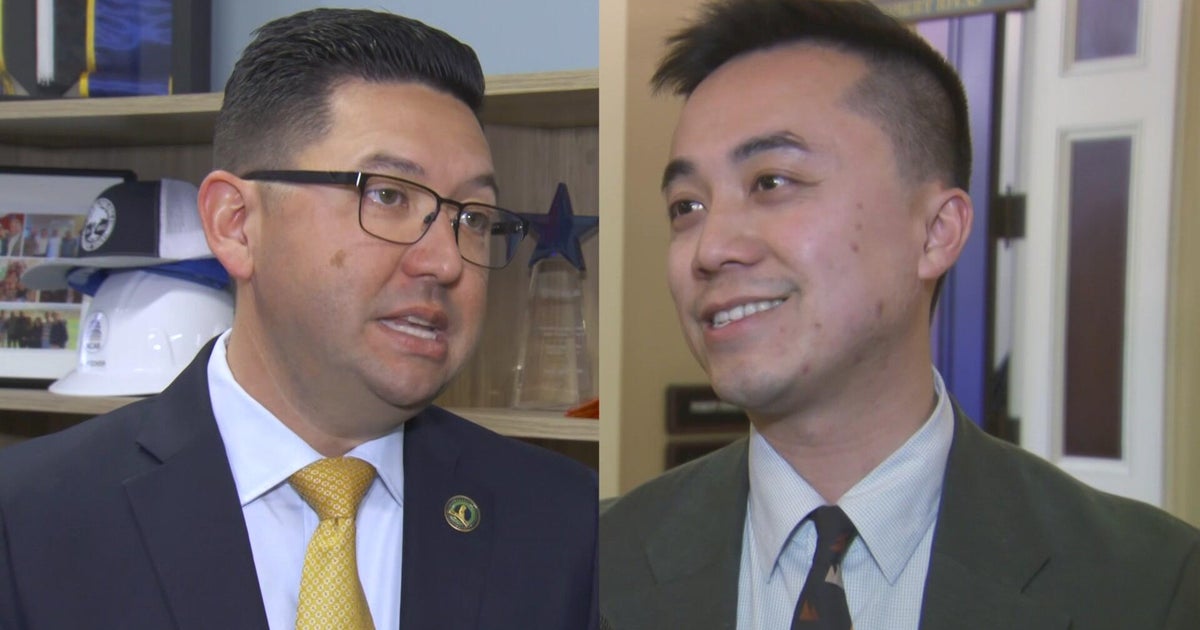McCarthy details House GOP bill to increase the debt limit, calls on Biden to begin talks
Washington — House Speaker Kevin McCarthy unveiled the details of his proposal to increase the debt limit and cut government spending, making his opening offer to Democrats while calling on President Biden to begin talks ahead of a summer deadline to avoid a default.
The GOP plan would increase the debt limit by $1.5 trillion or until the end of March 2024, whichever comes first, McCarthy said in brief remarks on the House floor Wednesday. Known as the Limit, Save, Grow Act, the 320-page bill includes $4.5 trillion in savings by cutting discretionary spending to fiscal year 2022 levels and limiting the growth of future spending, McCarthy said. It would also reclaim unspent COVID-19 funds, cancel Mr. Biden's student loan forgiveness program, rescind new funding for the IRS and enact work requirements for federal aid programs, among other provisions.
"If Washington wants to spend more, it will have to come together and find savings elsewhere, just like every household in America," the speaker said. "President Biden has a choice. Come to the table and stop playing partisan political games, or cover his ears, refuse to negotiate and risk bumbling his way into the first default in our nation's history."
McCarthy discussed the broad outlines of the bill in a speech at the New York Stock Exchange earlier this week, and the legislation is expected to reach the House floor next week. While any legislation that pairs a debt-limit increase with spending cuts is dead on arrival in the Democratic-controlled Senate, McCarthy is hoping to gain leverage ahead of negotiations with the White House by passing the GOP's own bill in the House.
The White House has called on Republicans to pass a "clean" debt ceiling increase with no spending cuts attached, and has refused to negotiate with McCarthy until he unveiled his own proposal.
The speaker again called on the president to begin talks in his remarks on Wednesday.
"They need to sit down, negotiate and address this crisis. Now that we've introduced a clear plan for responsible debt limit increase, they have no more excuse and refuse to negotiate," McCarthy said.
It remains unclear whether McCarthy has enough support from fellow Republicans for the bill to pass. McCarthy can afford only a handful of defections in the House given Republicans' slim majority.
Tennessee Republican Rep. Tim Burchett said McCarthy briefed him and some other members in a meeting Wednesday afternoon, but "it wasn't really a pitch" or a "hard sale." Burchett said he's "not there yet" on supporting the plan, but said he was the only person in the meeting not on board with it. GOP Rep. Barry Loudermilk of Georgia said it's not yet clear whether the bill will go through a committee process or head straight to the floor.
Mr. Biden criticized McCarthy's announcement during a speech on the economy in Maryland, calling the GOP bill "not a plan."
"Look at what he didn't say," Mr. Biden said. "He didn't tell you exactly how much he wants to cut. But the House leading Republican proposal would cut critical programs, so-called discretionary spending, by 22%. That would mean cutting the number of people who administer Social Security and Medicare, meaning longer wait times. Higher costs for child care, significantly higher, preschool, college, higher costs for housing, especially for older Americans, people with disabilities, families with children, veterans."
Whte House press secretary Karine Jean-Pierre said in a statement Thursday that, "MAGA House Republicans are holding the American economy hostage in order to take a hatchet to programs Americans rely on every day to make ends meet.
" ... House Republicans must avoid default and stop playing economic brinkmanship with the American people's livelihoods and retirements. The American people have made clear which economic vision they support."
The U.S. Treasury reached the current debt limit of $31.4 trillion in February, but Treasury Secretary Janet Yellen has employed "extraordinary measures" to avoid a default since then. Those efforts are expected to last until sometime in June, when the U.S. will no longer be able to meet its obligations.
Nikole Killion contributed to this report.



